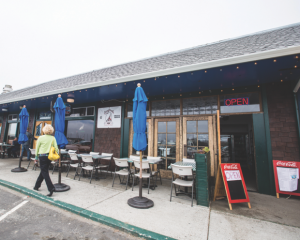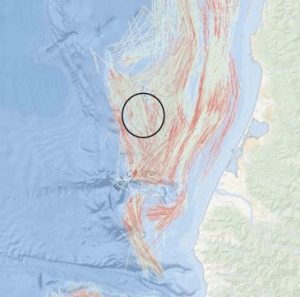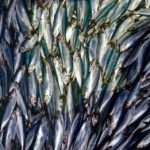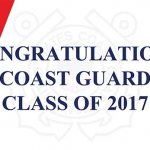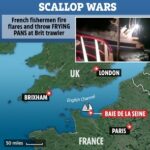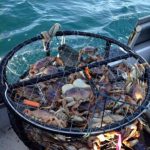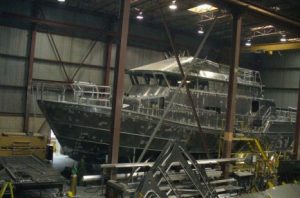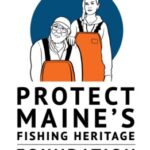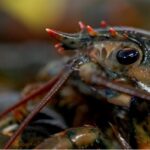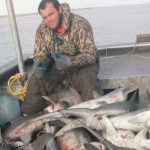Category Archives: Pacific
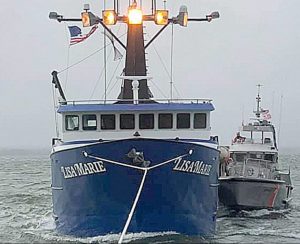
Adrift fishing vessel towed ashore by USCG in heavy seas
A 78-foot fishing vessel adrift after losing power about 15 miles off the Columbia River entrance Thursday evening was towed to safety by the U.S. Coast Guard after a nearly 20-hour operation in heavy seas, according to a Coast Guard release. The Lisa Marie suffered a loss of steering around 8 p.m. A crew launched a 47-foot motor life boat from Coast Guard Station Cape Disappointment and battled 12- to 16-foot seas and 40-knot winds to reach the vessel and take it into tow. >click to read<10:43
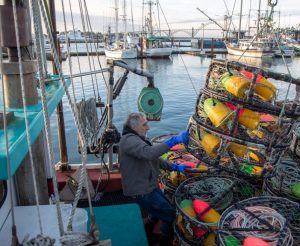
Crabbers to sail into storm
Fishermen face high seas and uncertain prices as they set out Friday, Jan. 4, for the opening day of Dungeness crab season. “The weather’s been terrible but we hope to be processing by Friday night,” reported John Moody, manager of Pacific Seafood Group’s plant in Newport. A score of vessels left port under sunny skies Tuesday to drop pots for the “pre-soak,” enabling fishermen to land crab at the opening bell. But 50-55 mph gusts and 20-foot swells that were predicted to arrive Thursday night could mean further holdups for some boats. >click to read<10:15
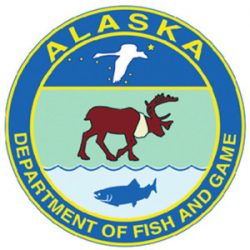
ADF&G releases terms of new Pacific Salmon Treaty
A new Pacific Salmon Treaty negotiated between the United States and Canada, and critical to fisheries and the economy of Southeast Alaska, is now in effect for the decade ahead, as state and commercial harvester entities wrestle with how to deal with it. Acting Commissioner of Fish and Game Doug Vincent-Lang notes that his agency released the actual language of the negotiated terms, which were several years in the making, to allow affected users the opportunity to review them, “especially given that the terms adopt new metrics for management of fisheries in Southeast Alaska. This was done to improve transparency,” he said on Jan. 2.>click to read<20:08
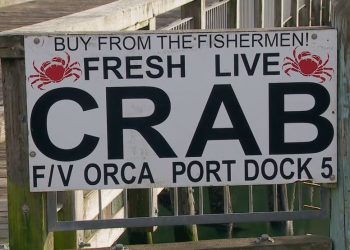
Dungeness crab season to officially open in January for parts of the Oregon coast
After a month-long delay, the Dungeness crab season is set to open at the beginning of January in Oregon, but industry experts say these appear to be a trend and they hurt coastal communities. Oregon’s Department of Fish and Wildlife will open the crabbing season for the central and northern coast. Fishermen can set their pots on Jan. 1 and begin pulling them on Jan. 4. It was supposed to open on Dec. 1. Officials delayed the season because there was not enough meat in the crabs. Rough weather also delayed testing. If all goes according to plan, you may be able to find crab in the markets by about Jan. 10, according to sellers. >click to read<13:39

Ilwaco: Ocean conditions again interfere with crab sampling
On Thursday turbulent seas again got in the way of collecting Dungeness crab to see if they have at least 23 percent meat in the waters south of Klipsan Beach, a requirement before the region’s commercial crabbers can start the 2018-19 season. The crab season traditionally starts Dec. 1, but is often delayed. Last season, harvests didn’t begin until Jan. 15, 2018. This season, early testing found crab slightly under 23 percent off the Long Beach Peninsula and substantially low in meat off southern Oregon. Delays have mounted as rough conditions keep a vessel contracted by the Washington Department of Fish and Wildlife from dumping pots — first on Dec. 22 and then on Dec. 26.>click to read<11:59
BREAKING: More crab season complications – >click to read< 16:44
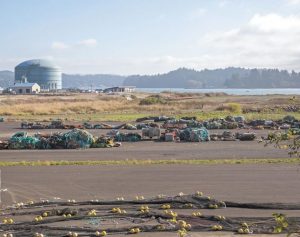
Port of Newport – Trawlers warm to shipping deal
An icy impasse between log shippers and fishermen that clouded the future of the Port of Newport and its new $20 million International Terminal showed signs of a thaw last week. At a meeting of the port’s commercial fishing users on Dec. 20, industry leaders were cautiously optimistic about a new proposal by Teevin Bros. to ship logs from the 500-foot terminal that fishermen claim is indispensable to 28 large vessels of the deepwater fleet based here. >click to read<10:36
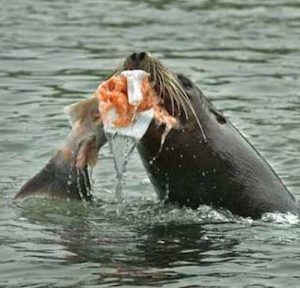
Sea lion bill signed into law by President Trump
Legislation that allows the lethal taking of sea lions that prey on at-risk fish populations on the Columbia River and select tributaries in Washington, Oregon and Idaho has been signed into law by President Donald Trump. The bipartisan bill, co-sponsored by Sen. James Risch, R-Idaho, and Sen. Maria Cantwell, D-Wash., makes slight changes to the Marine Mammal Protection Act of 1972, which lays out prohibitions for killing marine mammals, and institutes a permit process for the lethal taking of sea lions. Permit holders are legally allowed to kill sea lions that are part of a population and/or stock that is not classified as being depleted or at risk.>click to read<20:41
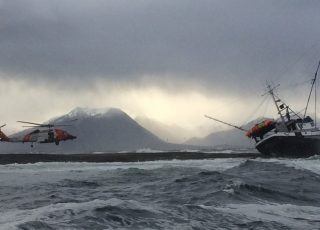
Catch Shares – Costs rise while values fall; season starts uncertain during shutdown
Fishermen in Alaska who own catch shares of halibut, sablefish and Bering Sea crab will pay more to the federal government to cover 2018 management and enforcement costs for those fisheries. ,, “The value of the halibut fishery was down 24 percent year over year, while sablefish was down 21 percent,” Greene said, adding that the decreases stemmed primarily from lower dock prices. ,,, Fish shutdown shaft-Hundreds of boats that are gearing up for the January start of some of Alaska’s largest fisheries could be stuck at the docks due to the government shutdown battle between President Donald Trump and Senate Democrats. >click to read<14:40
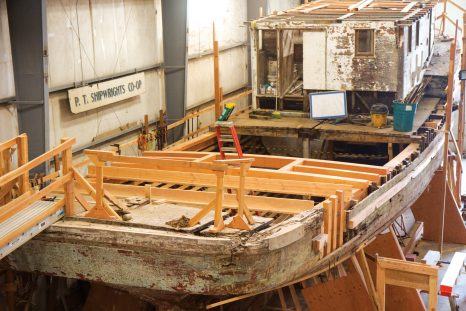
Work ramps up on Western Flyer
Sitting in the pilot house of the Western Flyer, the fishing boat that John Steinbeck and Ed Ricketts took down to the Sea of Cortez, shipwright Pete Rust is surrounded by history. He also is surrounded by a quandary. “The difficult thing I’m doing right now is trying to figure out how to remove the house from the boat without damaging it and without losing the original shape,” said Rust, a member of the Port Townsend Shipwrights Co-op, which is restoring the historic boat. The goal is to take the house off the boat and frame it on the floor to rebuild and restore it. But Rust has to figure out how to do that without the structure collapsing in on itself. >click to read<11:05
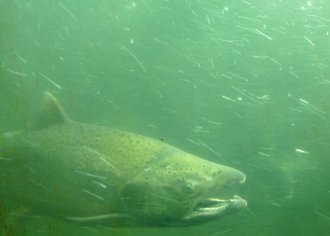
Washington State replaces nearly half of 6.2 million chinook salmon fry killed at Gig Harbor hatchery
The state will be able to replace nearly half of the 6.2 million chinook salmon fry that died earlier this month when a windstorm knocked out power at a Gig Harbor hatchery. Up to 2.75 million fall chinook fry will be taken from six other state hatcheries for release from Minter Creek and Tumwater Falls in May and June. “This won’t fully replace the salmon lost last week, but it will allow us to put a significant number of fish into these waters next year,” said Kelly Susewind, director of the Washington state Department of Fish and Wildlife. >click to read<10:06
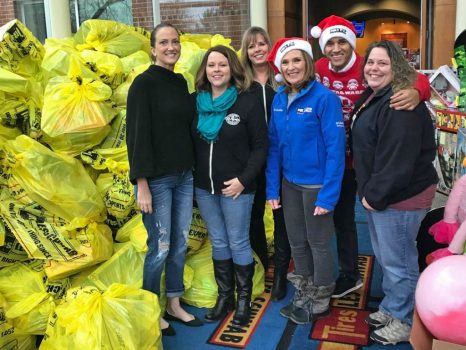
A fishing family tradition
Each year in December, Newport Fishermen’s Wives collect and distribute toys, food and clothing to fishing families that need the extra boost. The outreach program began as an effort to make sure there was food in the pantry and presents under the tree for Christmas, and it started because of a now-annual issue, a delayed crab season. It’s an outgrowth of the cooperation that marks an industry known for its close ties and a spirit of unity. “Many families in this area make the majority of their yearly income from crabbing,” said NFW President Taunette Dixon. “And when it starts late, like it has every year since we began this program, it can be devastating for families.” >click to read<
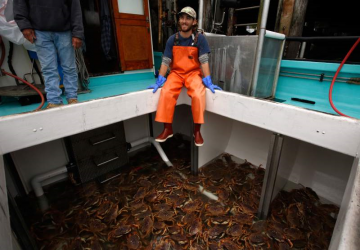
Sonoma Coast fleet scrambling to get crab on the table for Christmas
A pair of dogs on board bark excitedly as the Karen Jeanne pulls alongside the high dock at The Tides Wharf, returning ashore after 35 hours to offload hundreds of live Dungeness crab for quick delivery to markets around the region. A crane at a neighboring dock already is lifting square bins, each piled with 600 pounds of clacking, frantic crabs from another commercial boat. A third vessel circles and settles into position to wait its turn beneath a gray, late afternoon sky. It’s nippy out, and a wind-blown evergreen tree strung with twinkle lights and tethered to the roof of a storage shed at the side of the dock suggests Christmas is near. But there’s no letup among the workers onshore or on the boats. They’re idle only when they need to wait for something else to happen before they can start on their own particular chore. Otherwise, everyone moves fast and efficiently, aware it’s crunch time. 21 photo’s, >click to read<20:42
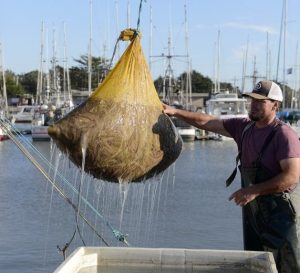
The changing face of Moss Landing
Weathered by age and the sea, rusted railings mark the path to Bay Fresh Seafoods, a one-room shop where fourth-generation Moss Landing fisherman Jerid Rold has just arrived with a writhing haul of hagfish – one of his few remaining profitable catches. Across the street stands the sleek and sophisticated Monterey Bay Aquarium Research Institute – a world-renowned center for advanced research in ocean science. Moss Landing, population 200, is rapidly switching identities. The historic town is seeing its commercial fishing roots disappear as Moss Landing secures its status as a prized destination for marine research and ecotourism. >click to read<11:01
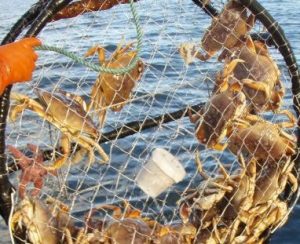
Northern California Commercial Dungeness Crab Season Delay Extended
The California Department of Fish and Wildlife (CDFW) Director Charlton H. Bonham announced an additional and final 15-day delay of the northern California commercial Dungeness crab season. Pending possible closures due to elevated levels of domoic acid, the season is now set to begin on Jan. 15, 2019. Quality tests as prescribed by the Pre-Season Testing Protocol for the Tri-State Coastal Dungeness Commercial Fishery were scheduled to occur this week, but rough ocean conditions prevented vessels from safely deploying and retrieving traps. This protocol requires that tested crab achieve a meat recovery rate to ensure that crab are ready for harvest. Previous quality test results from Dungeness crab collected on Nov. 3 and Dec. 4 indicated that crab did not have enough meat. Without any passing test results from these areas, the Director continued to delay the season to Jan. 15, the final date a quality delay can be set to occur. >click to read<
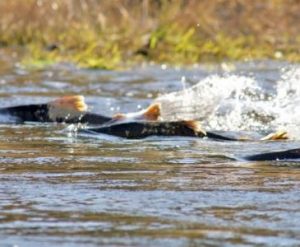
Northwest Dams to Spill More Water to Help Salmon & Orca
Dam operators will send more water spilling over the eight dams along the Snake and Columbia rivers in an effort to help young salmon survive the notoriously deadly trip to the Pacific Ocean. The spill management plan for 2019 and 2020 is a win for salmon advocates in a 17-year legal battle where federal judges have repeatedly told the government it’s not doing enough to prevent the extinction of salmon in the rivers of the Northwest. It also brings that litigation into alignment with the work of a Washington state task force determined to prevent the extinction of Southern resident killer whales whose survival depends on endangered Chinook salmon. >click to read<12:03
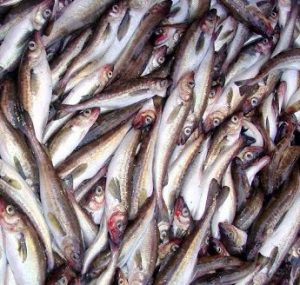
The farm bill’s untold story: What did Congress do for fish sticks?
The farm bill that Congress passed last week will be known for many things. It increases subsidies for farmers and legalizes industrial hemp. But for Alaska, the bigger impact might be what the bill does for fish sticks served in school lunchrooms across America. The National School Lunch Program has for decades required school districts to buy American-made food. But that doesn’t always happen when it comes to fish. “There was a major loophole,” Sen. Dan Sullivan, R-Alaska, said. “Major. That allowed, for example, Russian-caught pollock, processed in China with phosphates, sent back to the United States for purchase in the U.S. school lunch program.”>click to read<
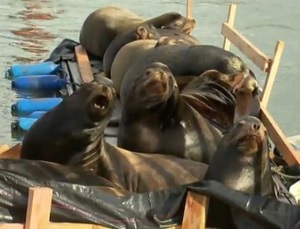
Conservation groups threaten lawsuit against Trump administration over salmon fishing
Two conservation groups say the federal government is violating the Endangered Species Act by failing to consider how salmon fishing off the West Coast is affecting endangered killer whales. The Arizona-based Center for Biological Diversity and the Washington state-based Wild Fish Conservancy on Tuesday notified President Donald Trump’s administration that they intend to file a lawsuit within 60 days unless officials reevaluate whether the fishing further jeopardizes orcas that frequent the inland waters of the Pacific Northwest. Video, >click to read<15:39
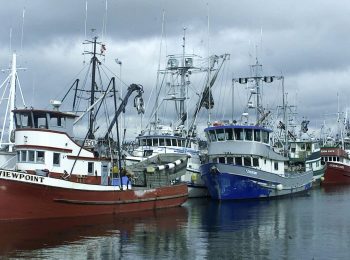
Seattle’s working waterfront: The Port of Seattle has a strategy for world-class maritime industries
Set aside the latest news about drone-delivered packages and consider the changes happening now in the ocean economy. More than 90 percent of the world’s trade travels over water, with total volume expected to triple by 2050. The global value of the ocean economy is expected to reach $3 trillion in the next three decades, with the largest gains coming in tourism. Fisheries provide an increasingly essential source of food, employment and revenue.,,, Maritime jobs offer well-paid and reliable careers and diversify the local economy. The Port of Seattle is seizing these benefits for our region. >click to read<16:57
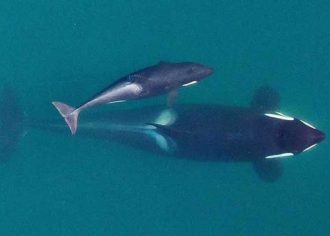
Expert skeptical of Washington state’s orca-saving proposal
“The question is: What’s the problem and what’s the solution?” Ray Hilborn told KIRO Radio’s Dave Ross. “And I have to say, I’m a bit skeptical about much of the discussion that has been raised.” Hilborn is a professor of fisheries and aquatic sciences at the University of Washington. There are many reasons for his skepticism, but a big part of it is that the conversation around the problem has missed the mark on many key points. “It’s almost certainly multiple causes for the decline of Southern Resident Killer Whales, but what I haven’t heard in the discussion is pointing out that Northern Resident Killer Whales, which also depend on Chinook salmon, are doing just fine. There are probably 5-6 times more of them than the Southern residents. Audio report, >click to read<17:47
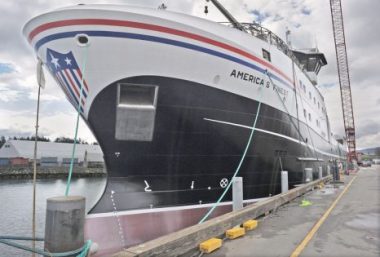
The Jones Act’s Strange Bedfellows
A strange thing happened on December 6th, 2018, when President Donald Trump signed a waiver that allowed the American business, Fishermen’s Finest, to sail its 80.5-meter fishing boat, America’s Finest, out of a Washington State shipyard over objections from special interest labor unions and trade associations. The ship was held in the harbor because its hull was made with too much Dutch steel. This violated the century-old protectionist law, the Jones Act, a little-known law passed in 1920. Even many of those who are hurt by it are unfamiliar with how this cumbersome law that likely costs the American economy millions of dollars every year. >click to read<15:53

Congress passes bill that will allow killing of sea lions to help salmon
Congress has agreed to make it easier to kill sea lions threatening fragile runs of salmon in the Northwest. Oregon Public Broadcasting reports that a bill approved by the House Tuesday changes the Marine Mammal Protection Act to lift some of the restrictions on killing sea lions to protect salmon and steelhead in the Columbia River and its tributaries. The measure had previously passed the Senate. Wildlife managers say sea lion populations have grown so large that they no longer need all the protections that were put in place for them in 1972. >click to read<10:14
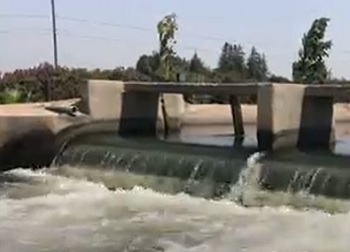
California shifts water from farms, cities to fish.
Despite an epic last-minute compromise brokered by Gov. Jerry Brown, state water regulators voted Wednesday to reallocate billions of gallons of San Joaquin River water from farms and cities to revive struggling fish populations. After hours of testimony, the State Water Resources Control board voted to deliver hundreds of thousands of acre-feet of water from the San Joaquin watershed to salmon, steelhead and other species that ply the fragile Delta. The vote will eventually take water from Valley farmers, who have blasted the plan as a “water grab,” as well as cities such as Modesto and San Francisco. >click to read<09:52
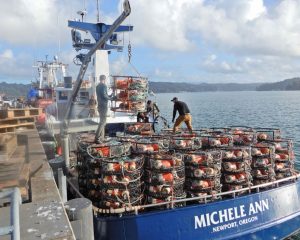
Second delay idles Newport crab fleet
The commercial Dungeness crab season has been pushed back — again — this time to at least Dec. 31 as fishery managers wait for pockets of light crab to come up to par. While some crab need more time to reach the meat content target of 25 percent, the wait has disappointed Newport fishermen who question extending delay when so much of the product is ready to be brought to the docks. Crab from Coos Bay north appear ready for harvest. Tests conducted Dec. 6-9 showed Newport crab at 26 percent meat content,,, Newport fisherman Corey Rock called the delay another example of a limited number of fishermen dictating the terms of the season to the larger fleet. >click to read<09:17
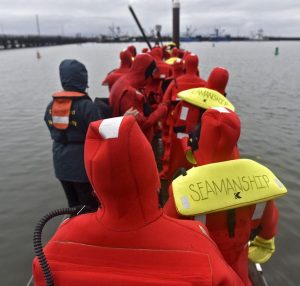
Letter: Celebrate efforts to make commercial fishing safer
I appreciated seeing Colin Murphey’s photography feature showing our local commercial fishing crews engaged in safety training on Nov. 30 (“Fishing — the Most Dangerous Game,” The Daily Astorian) >click to read<. However, the headline struck me as somewhat inappropriate for the content. The Coast Guard holds a drill conductor training here in Astoria three to four times a year, and Oregon Sea Grant helps get fishermen signed up. Amanda Gladics >click to read<08:49
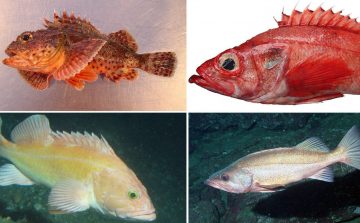
Rockfish make a remarkable recovery off California coast, prompting federal officials to raise catch limits
Locally caught red snapper was once a staple on Southern California menus and a vital part of the state’s fishing industry. But overfishing took its toll, resulting in federal restrictions nearly two decades ago to prevent their extinction. But with stocks rebuilding faster than anticipated, federal officials on Tuesday boosted catch limits by more than 100% for some species of rockfish in a move they said would help revive West Coast bottom trawlers and sportfishing fleets. >click to read<13:15
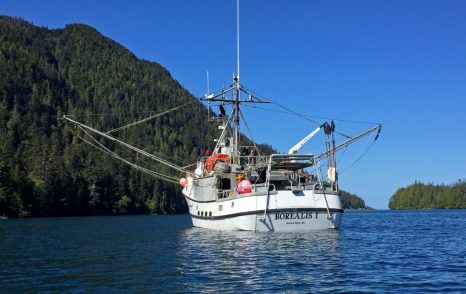
Why Does Halibut Cost So Much?
Dishes fly across the galley. Water gushes through the scuppers and onto the deck. Five crew members on the 17.5-meter commercial halibut boat Borealis I walk like drunkards, holding onto anything stable. “We’re going to get bounced around a bit,” Dave Boyes, the boat’s captain and owner, deadpans. My day started at first light, about six hours ago, watching the crew let out 2,200 galvanized circle hooks laced with chunks of pollock, squid, and pink salmon to soak across 13 kilometers of ocean bottom. Then, we ate breakfast and rested in cramped, cluttered bunks while the boat bounced on 1.5-meter waves and—below, in the cold unseen depths—the hooks sunk deep into the lips of the predatory halibut. Now, the crew readies for battle, cinching rubber rain gear and running crude gutting knives across electric sharpeners—a portent of the bloodshed to come. When Boyes toots the boat’s horn, it’s game on. >click to read<08:45

Fishermen unite to sue big oil
Almost a month has gone by since fishermen in California and Oregon filed suit against big oil in California’s Superior Court, demanding compensation for damages done to the fishing industry. The lawsuit is colloquially being called the crabbers’ suit because many of the members making up the plaintiff, The Pacific Coast Federation of Fishermen’s Associations, rely on crabbing for their livelihoods. The federation is suing the fossil fuel industry, including major companies like Chevron, ExxonMobil, BP, and Shell Oil, under the claim that it has known about the dangers of fossil fuels and climate change for decades but has deliberately hidden information from the public as well as spread misinformation campaigns. >click to read>12:35
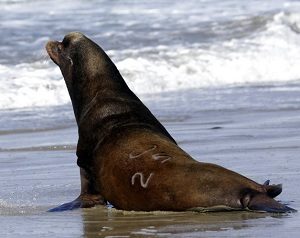
Senate Bill 3119 – Senate passes bill making it easier to kill sea lions
A bill that would make it easier to kill sea lions that feast on imperiled salmon in the Columbia River has cleared the U.S. Senate. State wildlife managers say rebounding numbers of sea lions are eating more salmon than ever and their appetites are undermining billions of dollars of investments to restore endangered fish runs. Senate Bill 3119, which passed Thursday by unanimous consent, would streamline the process for Washington, Idaho, Oregon and several Pacific Northwest Native American tribes to capture and euthanize potentially hundreds of sea lions found in the river east of Portland, Oregon. >click to read<09:17






